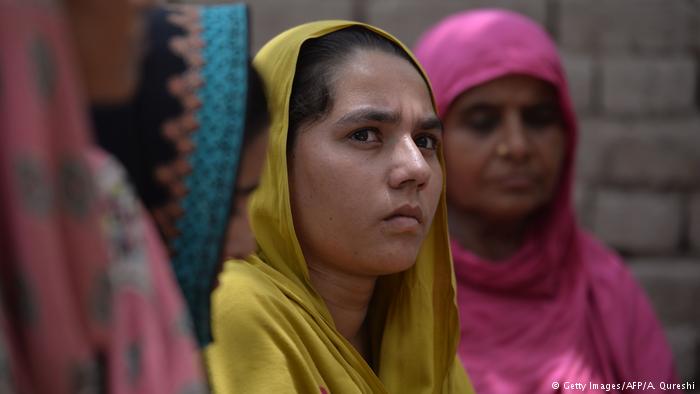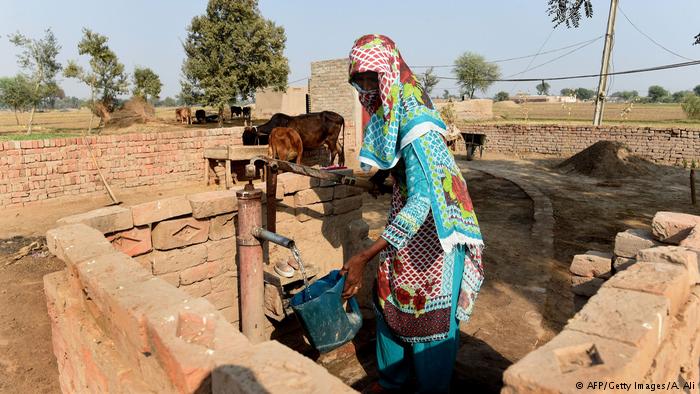A man in a woman’s world
 The first thing that would always come to my mind when someone spoke of acid attacks was a woman victim, until I met a man whose face and body was scarred by an attack masterminded by a woman.
The first thing that would always come to my mind when someone spoke of acid attacks was a woman victim, until I met a man whose face and body was scarred by an attack masterminded by a woman.
More than 200 people a year* in Pakistan are disfigured and left to live or die after their agonizing experience. Considering that the country has a population of 187 million (as of 2011), these numbers hardly make 0.0001%. Considering the value of one human life, they make a 100 percent.
The happy family’s curse
Most acid attack victims are females from the lower strata of society where the value of human life is almost negligible. This man is educated and modern. He lives in the capital city of Islamabad. He was attacked in his own home in the presence of his wife and two young children. While speaking to him, I try not to stare at his corroded ear and his damaged right arm. He cannot lift his children anymore.
It was a crime of one-sided, misplaced passion- the university sweetheart who was cordially dumped for an arranged marriage, five years ago. His wife now stands beside him and is fighting his battle for justice since the attack nine months ago. She looks exhausted but is determined to fight until the perpetrator is behind bars.
Meet Murad and Sakina, the quintessential urban family living a happy and fulfilling life together until a ghost from the past changed everything for them.
An inadequate legal system
The irony of the situation is that even an educated family has been rendered helpless by Pakistan’s legal system. Acid attacks became illegal in Pakistan only in 2010 when the Acid Control and Acid Crime Prevention Bill was passed. According to the relevant sections, a person booked under this crime cannot be granted bail.
The police registered Murad’s case under attempted murder, a bailable crime. It was not done out of malice on the police’s part, but out of sheer unawareness of the new law. The perpetrator, who had paid merely Rs.30,000 (286 US dollars) to the janitorial staff of Murad’s office to throw the acid, walked away with bail and that too after admitting to the crime in front of the law enforcers. Unfortunately her confession was not recorded in front of a magistrate as it should have been. Later, she conveniently changed her statement and pled not guilty.
Sakina had been struggling to get the case amended from an attempted murder to an acid crime and succeeded after many efforts, but the culprit still roams around free. Since the amendment in the crime, nothing much has happened anyway and the culprit hasn’t been captured again, as our courts (district level and high courts) are off for summer holidays. The only saving grace is that the attacker, a cleaner from the Christian community, who was hired by the woman to commit the crime, stays in jail.
‘Men can’t be victims’
I kept wondering why this case hasn’t been picked up by the mainstream media, who would otherwise take on any story to sensationalize an issue, a strategy which works sometimes to pressurize the legal system. The answer is that Murad as a victim is not “sorry enough.”
He has resumed his life after spending months in the hospital and undergoing multiple surgeries. Despite losing 20 kilos and developing an ulcer, despite his ear and arm being damaged forever and his deep emotional scars, he is back on his job and trying to be normal for his family.
He is not a “helpless” woman that people would like to see and lament about. Such is the hypocrisy of our society and the media. We victimize women and then sensationalize it, blaming and chastising some abstract forces. But when a man is victimized, and he is strong enough to move on, nobody pays attention, especially if that man is from a well-to-do background. Poor victims with blood-stained clothes and wailing women always make it to the headlines, don’t they?
Sakina and Murad continue to raise awareness and demand justice. They are trying to get more and more people to support them through the social media. They don’t know if it will take their cause anywhere. They can only hope to get some closure and restore their faith in the law of their land. Their facebook page ‘Unite Against Acid Crime’ provides information on their case and creates awareness about Acid crimes.
“What do the children think happened to their father,” I ask Sakina as I leave their house. She smiles and replies, “They think their dad was clumsy enough to drop hot water on himself.” And I think to myself, how we shield our children from the evils of the world and make them believe in humanity and kindness. Then they grow up.
Author: Soofia Says
Editor: Manasi Gopalakrishnan
* Source: Acid Survivors Foundation – Pakistan (ASF)






